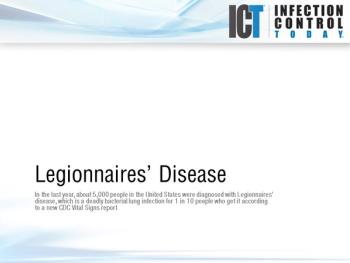
News




The Valley Hospital in Ridgewood, N.J., has launched a new interactive patient care system to help educate, engage and empower patients in their care. The system helps patients and their families take an active role in their health journey, which leads to improved patient satisfaction and clinical outcomes. Using an in-room television that transforms care at the bedside, patients using the interactive GetWellNetwork receive customized education on their condition, medications, patient safety and pain management, hospital services, as well as entertainment options including Internet access, television programming, movies, video games and music.




















Q: My hospital is implementing a third-party reprocessing program. I am not in support of this. I cannot believe that a company can take a single-use device and make it safe again. I am all for containing costs but not at the risk of a patient safety. What do you know about this process?

Fewer than one-fifth of ambulatory-care nurses surveyed in a recent study reported compliance with all nine components of Standard Precautions, indicating a continuing need for identifying barriers to compliance and emphasizing patient and healthcare personnel safety. As Powers, et al. (2016) emphasize, "Exposure to blood and bodily fluids represents a significant occupational risk for nurses. The most effective means of preventing bloodborne pathogen transmission is through adherence to Standard Precautions (SP). Despite published guidelines on infection control and negative health consequences of noncompliance, significant issues remain around compliance with SP to protect nurses from bloodborne infectious diseases, including hepatitis B virus, hepatitis C virus (HCV), and HIV."


Staphylococcus aureus bacteria are the leading cause of skin, soft tissue and several other types of infections. Staph is also a global public threat due to the rapid rise of antibiotic-resistant strains, including methicillin-resistant Staphylococcus aureus (MRSA). Yet Staph also commonly colonize our nasal passages and other body sites without harm. To better understand these bacteria and develop more effective treatments, University of California San Diego researchers examined not just a single representative Staph genome, but the "pan-genome" -- the genomes of 64 different strains that differ in where they live, the types of hosts they infect and their antibiotic resistance profiles.

